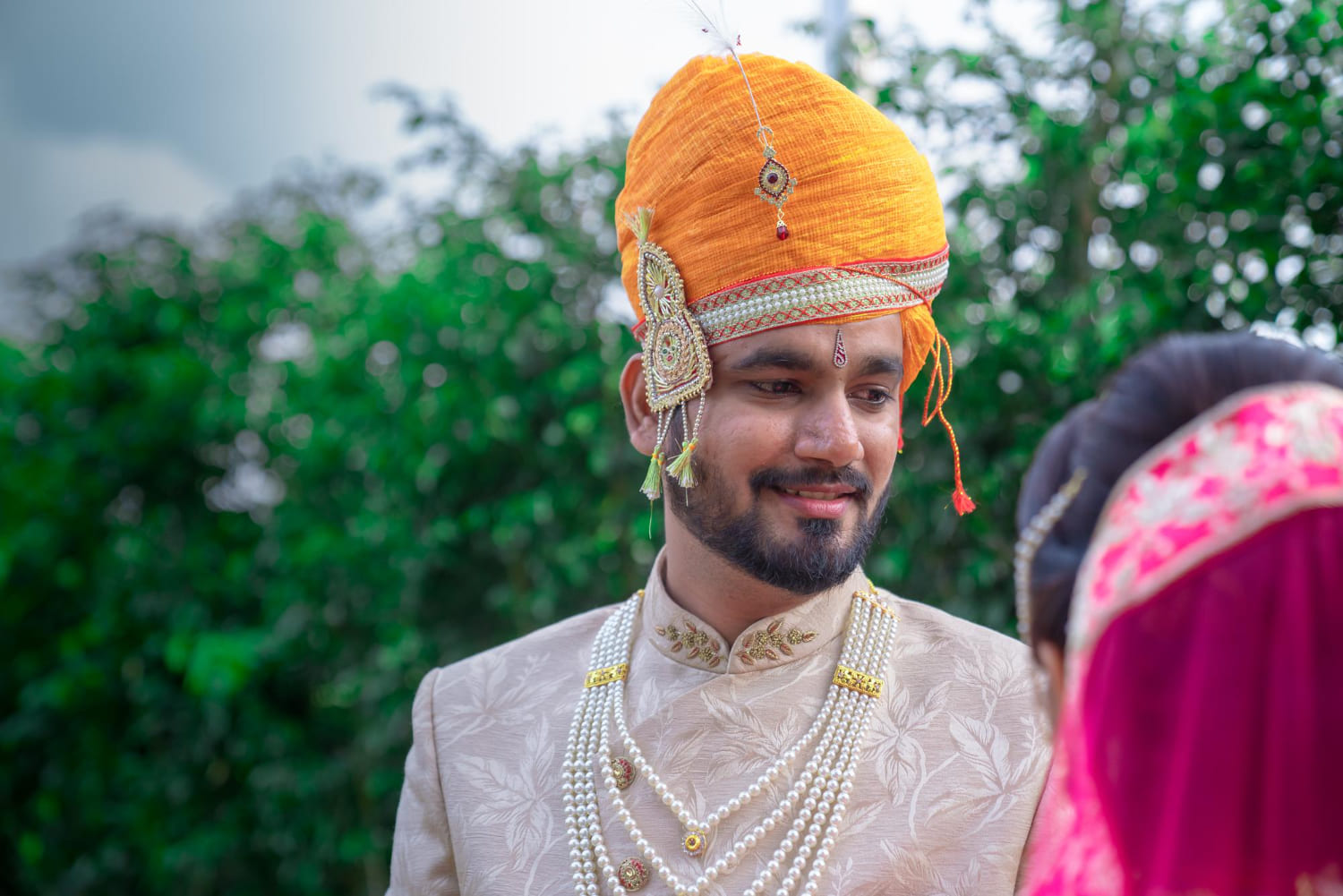Sikhism is a monotheistic religion that originated in the Punjab region of India in the 15th century. It is based on the teachings of ten Sikh Gurus, with the holy scripture of Sikhism, the Guru Granth Sahib, being the eleventh and final Guru.
Sikhism emphasizes the oneness of God, and the belief that all people are equal regardless of their race, gender, or social status.
The Sikh Gurus have described God in various ways in their hymns included in the Guru Granth Sahib.
According to Sikhism, God is formless, timeless, and omnipresent. The Mul Mantar, the first passage in the Guru Granth Sahib, emphasizes the oneness of God. It states that there is only one God, and that God is the ultimate reality, without any beginning or end.
While Sikhism emphasizes the oneness of God, it also recognizes the existence of other beings, such as angels and demons. These beings are not considered to be gods, but rather are seen as part of God’s creation.
In this article, we will provide a full list and guide to Sikh Gods, including their names, attributes, and significance in Sikhism.
What are Sikh Gods?
Sikhism is a monotheistic religion that believes in one Supreme God, known as Waheguru. The concept of God in Sikhism is unique and different from other religions. Sikhism believes that God is formless, timeless, and omnipresent.
The ultimate goal of human life is to merge with God, and the only way to achieve this is through meditation and selfless service.
Although Sikhism believes in one God, there are many names and forms of God that Sikhs use to describe the different aspects and attributes of God. These names and forms are known as Sikh Gods or Sikh deities.
However, it is important to note that Sikhs do not worship these deities as separate entities, but rather as different aspects of the one Supreme God.
Here are some of the Sikh Gods and their descriptions:
- Waheguru: The Supreme God, who is formless, timeless, and omnipresent.
- Ek Onkar: The symbol of the one Supreme God, which means “One God”.
- Satnam: The name of God, which means “True Name”.
- Akal Purakh: The eternal and immortal God, who is beyond time and death.
- Nirankar: The God who is without form or shape.
- Vaheguru: Another name for the Supreme God, which means “Wonderful Teacher”.
Sikhs believe that all these names and forms of God are different ways of describing the same Supreme Being. They are used to help Sikhs understand and connect with God in their own way.
The Concept of One God in Sikhism
Sikhism is a monotheistic religion that believes in only one God, referred to as Waheguru. The concept of one God is central to Sikhism, and it is believed that God is the creator of the universe and everything in it.
Sikhs believe that God is omnipotent, omniscient, and omnipresent, meaning that God is all-powerful, all-knowing, and present everywhere at all times.
Sikhism teaches that God is genderless and eternal, and that God is the sole cause of creation, preservation, and destruction.
According to Sikh thought, the universe operates under the command of God, known as hukam, and its origins and end are in God. Sikhs believe that God is separate from the universe, or Nirgun, meaning transcendent.
The belief in one God is a fundamental aspect of Sikhism, and it is reflected in the daily prayers and hymns that Sikhs recite.
The Mool Mantar, the opening verse of the Sikh holy book, the Guru Granth Sahib, declares, “There is only one God, whose name is true, the creator, devoid of fear and enmity, immortal, never incarnated, self-existent, known by grace through the Guru.”
Overall, the concept of one God in Sikhism is a unifying force that brings together Sikhs from all walks of life.
It is a belief that emphasizes the oneness and interconnectedness of all things, and it encourages Sikhs to live their lives in service to others and in devotion to God.
The Importance of Guru Granth Sahib
The Guru Granth Sahib is the holy scripture of Sikhism and is considered to be the eternal Guru by Sikhs. It is a collection of hymns and teachings of the Sikh Gurus and other saints and scholars of different religions.
The Guru Granth Sahib is regarded with utmost reverence and respect by Sikhs, and it is the centerpiece of Sikh worship and devotion.
The Guru Granth Sahib is not just a book, but it is treated as a living entity. It is kept in a special room called the Sachkhand (the realm of truth) in every Gurdwara (Sikh temple), and it is placed on a throne-like platform called the Takht (throne).
The Guru Granth Sahib is treated with the same reverence and respect as the human Gurus, and it is considered to be the embodiment of the divine wisdom and guidance.
Reading and understanding the Guru Granth Sahib is an essential part of Sikhism. Every Sikh is encouraged to read and reflect on the teachings of the Guru Granth Sahib, and it is believed that doing so can lead to spiritual enlightenment and liberation.
The Guru Granth Sahib is not just a religious text, but it is also a source of inspiration, guidance, and comfort for Sikhs in their daily lives.
The Guru Granth Sahib is also a symbol of the unity of Sikhism. It contains the teachings of the Sikh Gurus, who are considered to be one and the same, and it promotes the idea of the oneness of God and the equality of all human beings.
The Guru Granth Sahib is written in Gurmukhi script, which is a script developed by the Sikh Gurus themselves, and it is accessible to all Sikhs regardless of their language or cultural background.
The Sikh Pantheon: A Comprehensive List of Gods and Goddesses
Sikhism is a monotheistic religion that believes in the existence of one God. However, the religion also recognizes the existence of various deities and saints, who are revered and worshipped by the followers of the faith.
Here is a comprehensive list of the most important Sikh gods and goddesses:
- Waheguru: Waheguru is the main and true name used for God in Sikhism, and is the ultimate source of all creation.
- Guru Nanak: The founder of Sikhism, Guru Nanak is considered a divine messenger and spiritual guide.
- Guru Gobind Singh: The tenth and final Sikh guru, Guru Gobind Singh is revered for his contributions to the Sikh faith.
- Guru Granth Sahib: The holy scripture of Sikhism, the Guru Granth Sahib is considered a living guru and is worshipped as such.
- Guru Panth: The collective body of Sikh followers, Guru Panth is considered a divine entity and is revered as such.
- Dasam Granth: A collection of writings attributed to Guru Gobind Singh, the Dasam Granth is considered a secondary scripture in Sikhism.
In addition to these deities, Sikhism also recognizes the existence of various saints and holy men, who are revered for their spiritual contributions to the faith.
These include:
- Baba Deep Singh: A prominent Sikh warrior and scholar, Baba Deep Singh is revered for his bravery and dedication to the Sikh faith.
- Bhai Mani Singh: A Sikh scholar and martyr, Bhai Mani Singh is revered for his contributions to the Sikh scripture.
- Bhagat Kabir: A saint and poet, Bhagat Kabir is revered for his spiritual teachings and poetry.
- Bhagat Ravidas: A saint and poet, Bhagat Ravidas is revered for his spiritual teachings and poetry.
- Bhagat Namdev: A saint and poet, Bhagat Namdev is revered for his spiritual teachings and poetry.
Overall, the Sikh pantheon is a diverse and complex collection of deities, saints, and holy men, each of whom plays an important role in the spiritual life of the Sikh community.
The Role of Sikh Gods in Daily Life
Sikhism is a monotheistic religion, and Sikhs believe in one God, who is known by many names such as Waheguru or Akal Purakh. However, Sikhism also acknowledges the existence of other divine beings, known as Sikh Gods or Devas.
These Sikh Gods are not worshipped in the same way as the One God, but they do play an important role in the daily life of Sikhs.
The Sikh Gods are believed to be powerful beings who can help and protect humans. They are often associated with specific qualities or aspects of life, such as prosperity, courage, or wisdom. Sikhs may pray to these Sikh Gods for help or guidance in their daily lives.
Some of the most important Sikh Gods include:
- Guru Nanak Dev Ji: The founder of Sikhism and the first of the ten Sikh Gurus. He is considered to be a divine figure and is revered by Sikhs.
- Guru Gobind Singh Ji: The tenth and last of the Sikh Gurus. He is known for his bravery and is often invoked for protection.
- Guru Granth Sahib: The holy scripture of Sikhism, which is considered to be a living Guru. It is often treated with great reverence and is believed to contain the words of the Sikh Gurus.
- Devi: The female divine energy, often associated with motherhood and protection. She is sometimes worshipped as a separate entity, but is also seen as a manifestation of the One God.
- Ganesh: The Hindu god of wisdom and prosperity, who is also worshipped by some Sikhs.
While the One God is the ultimate focus of Sikh worship, the Sikh Gods can provide comfort and guidance to Sikhs in their daily lives.
Whether through prayer or meditation, Sikhs may seek the help of these divine beings to navigate the challenges of life.
Conclusion
In conclusion, Sikhism is a monotheistic religion that believes in one God who is the sole creator, preserver, and destroyer of the universe. The religion was founded by Guru Nanak in the 15th century, and subsequently led by nine other Gurus.
Sikhism emphasizes the importance of meditation, selfless service, and devotion to God.
While Sikhism has one God, there are many different names and forms that this God takes on. The Sikh Gurus and holy scripture describe these forms and attributes in detail.
Some of the most important Sikh Gods include Waheguru, who is the ultimate creator and destroyer, and Ek Onkar, which means “one supreme reality” and represents the unity of God.
Other important Sikh Gods include the ten Sikh Gurus themselves, who are revered for their teachings and wisdom. Additionally, Sikhism recognizes many other deities from various religious traditions, including Hinduism and Islam.
Overall, Sikhism’s unique perspective on God and the universe has made it one of the most fascinating and important religions in the world today.
By studying the Sikh Gods and their various attributes, we can gain a deeper understanding of this rich and complex religion.







